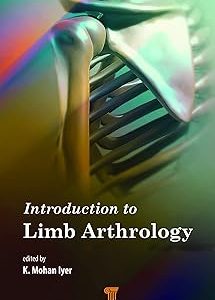Description
The **Holy Gita Ready Reference** is typically a guide or resource that provides concise explanations, interpretations, and key concepts from the **Bhagavad Gita**, an ancient Hindu scripture that is part of the Indian epic, the **Mahabharata**. It serves as a useful tool for understanding the core teachings of the Gita in an accessible and organized manner.
Here’s a quick overview of the Bhagavad Gita’s main themes, along with reference points that might be included in a ready reference guide:
### 1. **Introduction to the Bhagavad Gita:**
– **Context**: A conversation between Prince Arjuna and Lord Krishna on the battlefield of Kurukshetra.
– **Setting**: Arjuna faces a moral dilemma about fighting in a war against his own kin, teachers, and friends.
– **Significance**: The Gita presents profound philosophical teachings about duty, righteousness, and the nature of the self.
### 2. **Key Concepts in the Bhagavad Gita:**
– **Dharma (Duty/Righteousness)**: The idea that each person has a role in life that they must fulfill. Arjuna’s dharma is to fight in the war.
– **Karma (Action)**: The importance of selfless action, without attachment to the results.
– **Bhakti (Devotion)**: The path of loving devotion towards God, often emphasized by Krishna as the supreme path.
– **Jnana (Knowledge)**: The path of wisdom, understanding the true nature of reality and the self.
– **Yoga (Union)**: Different types of yoga (e.g., Karma Yoga, Bhakti Yoga, Jnana Yoga) that lead to spiritual liberation.
### 3. **Chapters Overview:**
– **Chapter 1: Arjuna Vishada Yoga (The Yoga of Arjuna’s Dejection)**: Arjuna expresses his doubts and moral dilemmas.
– **Chapter 2: Sankhya Yoga (The Yoga of Knowledge)**: Krishna begins his teachings, focusing on the nature of the soul and duty.
– **Chapter 3: Karma Yoga (The Yoga of Selfless Action)**: Krishna explains the importance of performing one’s duty without attachment.
– **Chapter 4: Jnana Karma Sanyasa Yoga (The Yoga of Knowledge and Renunciation of Action)**: The relationship between knowledge and selfless action.
– **Chapter 5: Karma Sanyasa Yoga (The Yoga of Renunciation)**: The path of renunciation and the difference between renunciation and action.
– **Chapter 6: Dhyana Yoga (The Yoga of Meditation)**: The importance of meditation in controlling the mind and achieving inner peace.
– **Chapter 7: Jnana Vijnana Yoga (The Yoga of Knowledge and Wisdom)**: The nature of the Supreme Reality and the knowledge of the Divine.
– **Chapter 8: Aksara Brahma Yoga (The Yoga of the Imperishable Absolute)**: The eternal nature of the soul and ultimate reality.
– **Chapter 9: Raja Vidya Raja Guhya Yoga (The Yoga of Royal Knowledge and Royal Secret)**: Krishna reveals the most secret and powerful knowledge.
– **Chapter 10: Vibhuti Yoga (The Yoga of Divine Glories)**: Krishna explains his divine manifestations in the world.
– **Chapter 11: Visvarupa Darshana Yoga (The Yoga of the Vision of the Universal Form)**: Krishna reveals his universal form to Arjuna.
– **Chapter 12: Bhakti Yoga (The Yoga of Devotion)**: The path of devotion and its benefits.
– **Chapter 13: Kshetra Kshetragna Vibhaga Yoga (The Yoga of the Field and the Knower of the Field)**: The distinction between the body and the soul.
– **Chapter 14: Gunatraya Vibhaga Yoga (The Yoga of the Division of the Three Gunas)**: The three gunas (modes of nature) – sattva (goodness), rajas (passion), and tamas (ignorance).
– **Chapter 15: Purusottama Yoga (The Yoga of the Supreme Divine Personality)**: Krishna as the supreme being.
– **Chapter 16: Daivasura Sampad Vibhaga Yoga (The Yoga of the Division between the Divine and the Demoniacal)**: The characteristics of divine and demoniacal natures.
– **Chapter 17: Sraddhatraya Vibhaga Yoga (The Yoga of Threefold Faith)**: The three types of faith corresponding to the three gunas.
– **Chapter 18: Moksha Sanyasa Yoga (The Yoga of Liberation and Renunciation)**: The final teachings of Krishna, concluding with the path to liberation.
### 4. **Important Verses (Shlokas) and Their Meanings:**
– **Bhagavad Gita 2.47**: *”Your right is to perform your duty only, but never to its fruits.”* (Focus on selfless action)
– **Bhagavad Gita 3.16**: *”He who does not follow the wheel of creation set of going in this world, sinful and sensual, he lives in pain.”* (Importance of performing one’s duty)
– **Bhagavad Gita 4.7-8**: *”Whenever there is a decline in righteousness and an increase in unrighteousness, O Arjuna, at that time I manifest myself on earth.”* (The divine incarnation for the restoration of dharma)
– **Bhagavad Gita 9.22**: *”To those who are constantly devoted and who always remember Me with love, I give the understanding by which they can come to Me.”* (The power of devotion)
### 5. **Interpretations and Teachings:**
– **Detachment and Renunciation**: The Gita stresses the importance of performing duties without attachment to outcomes.
– **Oneness with God**: Krishna teaches that all paths lead to him, and ultimately, all living beings are part of him.
– **Spiritual Practice**: The Gita guides towards personal spiritual growth through disciplined practice, including meditation, devotion, and wisdom.
### 6. **Life Applications of the Bhagavad Gita:**
– **Conflict Resolution**: Arjuna’s inner conflict can be understood as a metaphor for the moral struggles we face in daily life.
– **Self-Improvement**: The Gita emphasizes constant self-improvement through action, meditation, and knowledge.
– **Leadership and Responsibility**: The Gita provides profound insights into leadership, duty, and the responsibilities of life.

















Reviews
There are no reviews yet.